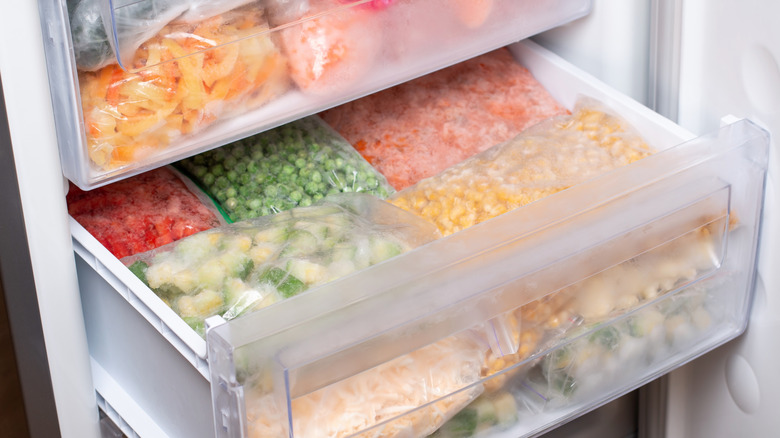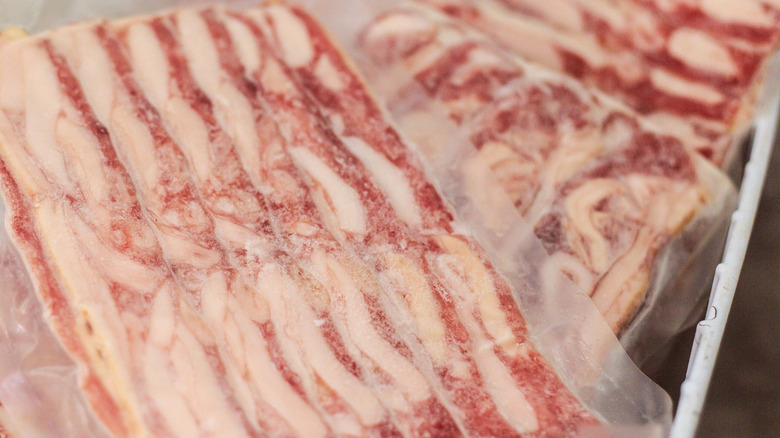Why You Should Freeze Some Foods Instead Of Canning Them
When it comes to home food preservation, two methods that most of us are familiar with are home canning and freezing. Both are effective and each has its drawbacks as well as benefits. Freezing means taking up space in your freezer, and if you lose power for an extended period of time, your food could go bad. Per the canning jar maker Ball, canning will provide you with food that remains shelf-stable for up to 18 months, but it requires a water bath or pressure canner, plus glass jars and lids in order to store food.
There are a few benefits to freezing as a method of preservation, including that frozen foods retain more vitamins and minerals, says Eat Right. Another benefit is the lack of equipment needed for freezing — all you need is a freezer. Plus, freezing gives you more options of what you're able to store your food in, from plastic zip bags to plastic containers and more, according to Coastal Country.
What foods to freeze
There's also a bit of a science to canning foods, as food is labeled by its acidity level and that determines how it's processed. Low acid foods, such as most vegetables and all meats, must be pressure canned, whereas high acid foods, like fruits, can be water bath canned, via South Dakota State University Extension. When it comes to freezing food, you don't have to worry about the acidity level of your fruits, vegetables, or meat, as noted by Serious Eats. Instead, in most cases, you can simply freeze it.
Some of the foods that freeze wonderfully either don't do well when they're home canned, or you can't safely home can those foods. A few examples include dairy, such as butter, milk, and cheese. All of these diary items freeze well, but they're unsafe to can at home, as reported by the National Center for Home Food Preservation. Other foods that are great in the freezer, but not when they're canned, are cured meats like bacon, biscuit or pastry dough, and shelled nuts, according to The Guardian.

